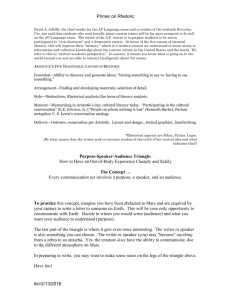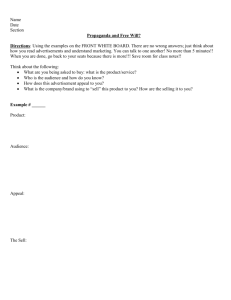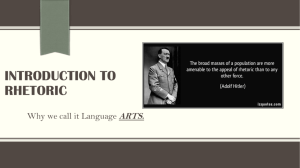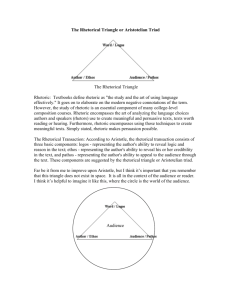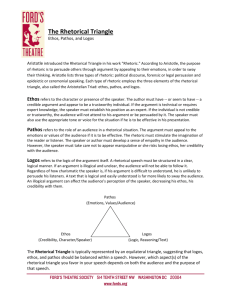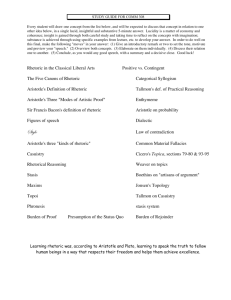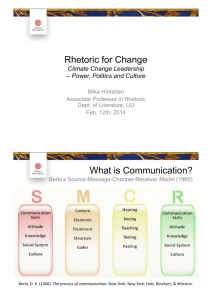What is Rhetoric
advertisement
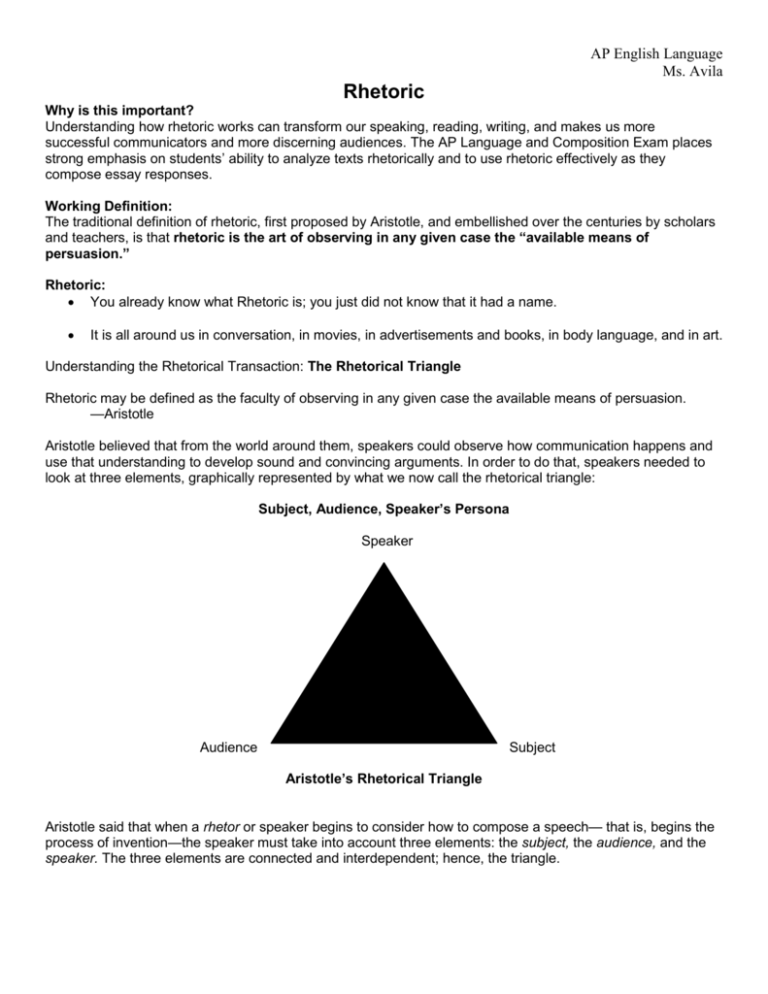
AP English Language Ms. Avila Rhetoric Why is this important? Understanding how rhetoric works can transform our speaking, reading, writing, and makes us more successful communicators and more discerning audiences. The AP Language and Composition Exam places strong emphasis on students’ ability to analyze texts rhetorically and to use rhetoric effectively as they compose essay responses. Working Definition: The traditional definition of rhetoric, first proposed by Aristotle, and embellished over the centuries by scholars and teachers, is that rhetoric is the art of observing in any given case the “available means of persuasion.” Rhetoric: You already know what Rhetoric is; you just did not know that it had a name. It is all around us in conversation, in movies, in advertisements and books, in body language, and in art. Understanding the Rhetorical Transaction: The Rhetorical Triangle Rhetoric may be defined as the faculty of observing in any given case the available means of persuasion. —Aristotle Aristotle believed that from the world around them, speakers could observe how communication happens and use that understanding to develop sound and convincing arguments. In order to do that, speakers needed to look at three elements, graphically represented by what we now call the rhetorical triangle: Subject, Audience, Speaker’s Persona Speaker Audience Subject Aristotle’s Rhetorical Triangle Aristotle said that when a rhetor or speaker begins to consider how to compose a speech— that is, begins the process of invention—the speaker must take into account three elements: the subject, the audience, and the speaker. The three elements are connected and interdependent; hence, the triangle. AP English Language Ms. Avila Considering the subject means writer/speaker evaluates what he or she knows already and needs to know, investigates perspectives, and determines kinds of evidence or proofs (evidence) that seem most useful. Considering the audience means speculating about the reader’s expectations, knowledge, and disposition with regard to the subject writers explore. Writers (Speakers) use who they are, what they know and feel, and what they’ve seen and done to find their attitudes toward a subject and their understanding of the reader. The creation of that voice Aristotle called the persona, the character the speaker creates as he or she writes. Appeals to Logos, Pathos, and Ethos In order to make the rhetorical relationship—speakers to hearers, hearers to subjects, speakers to subjects— most successful, writers use what Aristotle and his descendants called the appeals: logos, ethos, and pathos. They appeal to a reader’s sense of logos when they offer clear, reasonable premises and proofs, when they develop ideas with appropriate details, and when they make sure readers can follow the progression of ideas. Writers use ethos when they demonstrate that they are credible, good-willed, and knowledgeable about their subjects, and when they connect their thinking to readers’ own ethical or moral beliefs. When writers draw on the emotions and interests of readers, and highlight them, they use pathos, the most powerful appeal and the most immediate—hence its dominance in advertisements. Context and Purpose It’s important to note that Aristotle omitted—or confronted only indirectly—two other elements of the rhetorical situation, the context in which writing or speaking occurs and the emerging aim or purpose that underlies many of the writer’s decisions. These two considerations affect every element of the rhetorical triangle. Words and forms carry writers’ intentions, but, those aims can be miscommunicated. Investigating how readers perceive intentions exposes where and how communication happens or is lost. Information borrowed from Hepzibah Roskelly’s article “What Do Students Need to Know About Rhetoric?”
